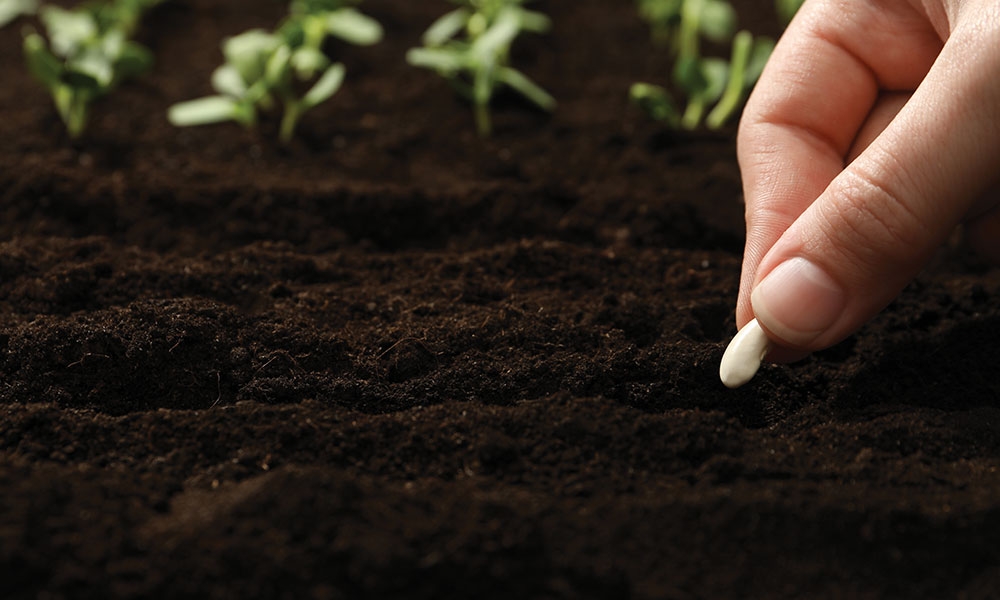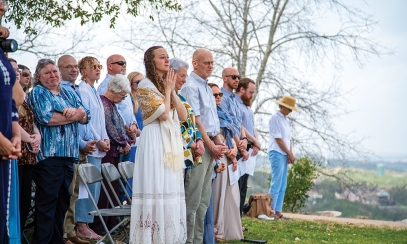
Jesus — The Master Gardener
Scripture scholar Father Leon Strieder reminds us that Lent derives from a Middle English word for springtime. These liturgical and calendar seasons align in many ways. Lent calls for penance, cleansing and personal transformation. Spring planting means preparing the soil and removing weeds, then sowing row crops or putting in flowers, vegetables, shrubs or trees. Both endeavors require messy preparations intended to yield results later.
Scripture scholar Father Leon Strieder reminds us that Lent derives from a Middle English word for springtime. These liturgical and calendar seasons align in many ways. Lent calls for penance, cleansing and personal transformation. Spring planting means preparing the soil and removing weeds, then sowing row crops or putting in flowers, vegetables, shrubs or trees. Both endeavors require messy preparations intended to yield results later.
Luke’s Gospel (13:1-9) on the Third Sunday of Lent includes verses about the orchard owner vexed by the fruitless fig tree. “So cut it down,” he ordered, “Why should it exhaust the soil?” The gardener protests in defense of the barren tree, asking for another chance to cultivate the ground and fertilize in hopes the tree may still bear fruit.
I love this parable. The owner (God) of the orchard (earth) finds that the fig tree (gift of life) planted there has yielded no fruit (faith), so is inclined to cut his losses. The humble gardener (Christ) intercedes to give the tree one more chance to produce — salvation history in a nutshell.
Let’s look closer at cultivating and fertilizing. Turning over the ground to aerate the soil is one thing, fertilizing another. Back in biblical times, fertilizer meant manure. I recall as a boy visiting my uncle’s dairy farm in Montana, where I first saw a manure spreader. There’s no way to handle that sticky, smelly stuff without making a mess. Yet, that’s how dirty Christ, our “Mess-iah,” gets trying to lead each one of us back to the Father.
The fig tree parable contains several rich metaphors applicable to modern life. Parents or grandparents raising children, or any caregiver entrusted with responsibility for another person, are called to function in persona Christi (“in the person of Christ”) while discharging their duties. Does the tone and nature of our parenting or caregiving reflect the loving tenderness that Christ the Master Gardener demonstrated toward the fig tree? Do our efforts include firm guidance and safe boundaries when needed to promote healthy, thriving growth?
The parable’s meaning can be further applied to our siblings, relatives, friends, faith communities and the broader human family. Are we helping to cultivate their faith as part of our ongoing Christian mission? Bringing Christ to others means being Christ to others, even when doing so gets messy and difficult.
Finally, we each carry responsibility for ourselves as living beings created by the Father. Ultimately, we must answer for our own faith development, even if we did not receive the best foundation as children or adolescents. We are the gardener for the fig tree that is us. Are we using our talents (bearing fruit) to reflect his glory? Or are we merely exhausting the earth’s resources for our own gratification and pleasure without perspective on our true purpose and mission?
Lest all this talk bounce around like a bunch of heady ideas, try gloving up and planting something in the soil this Lent. While doing so, contemplate how Jesus, the Master Gardener, lovingly cares for us and all living things on earth. With our salvation procured by his bloody, messy passion, how can we faithfully respond to the second chance he gave us?
Louis A. Gamino is a clinical psychologist at Baylor Scott White Health and a member of St. Luke Parish in Temple. Find more about him at www.LouisGamino.com.



